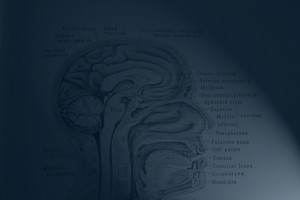 Since I can remember, I’ve been interested in the unexplained. Science Fiction and the Paranormal led me to possibilities I could only imagine. My love of psychology blossomed much later, but it was a head over heels affair with what I knew I was meant to do for the rest of my life.
Since I can remember, I’ve been interested in the unexplained. Science Fiction and the Paranormal led me to possibilities I could only imagine. My love of psychology blossomed much later, but it was a head over heels affair with what I knew I was meant to do for the rest of my life.
When I first started studying psychology in 2001, I began to question just how the unexplained would fit into my world of perception tests and treatment modalities. It wasn’t until a very wise professor introduced me to the world of parapsychology and debunking did I realize that the two worlds were more than connected, they were meant to take me on a journey.
In the fall of 2003, I was asked to TA for a freshman seminar about parapsychology, or the scientific research and study of paranormal phenomena. Dr. Muchisky sought to teach the class how to think critically about paranormal phenomena and how to sort out the real thing from the hoaxes. A true skeptic, Dr. Muchisky allowed me to take a more middle-ground approach, supporting the theories of the students while still encouraging them to seek out all other explanations before making the assumption it was paranormal.
What I didn’t realize was just how much I was destined to learn. Through that semester, I began to develop my own sense of paranormal research and began reading whatever I could get my hands on. While I was fascinated by it all, the research on paranormal investigation of hauntings stuck with me the most.
Four years and two degrees later, I find myself walking into a paranormal investigation group for the first time. Able to offer my knowledge on parapsychology, skepticism, and debunking, I quickly realized how much I could contribute to the field. To this day, it is my belief that every investigation group needs a skeptic. If we don’t question, then how will we ever find the answer?
With my six years of education in psychology and over two years of experience in investigating the paranormal, it is still hard to describe just how one impacts the other. I arm myself with the following tools for each investigation; openness, the right to question, the ability to observe and analyze, and finally, the need for evidence. Psychologists do not diagnose and treat without evidence of a disorder. Paranormal Investigators do not claim a location has activity if there is no evidence to back it up.
I find myself today still on this journey. I look forward to finding and using new, innovative investigation tools and techniques to further my search for evidence. Until there is definitive proof, I will be out there looking.
For more, see Part Two.
This article is written in Memory of Dr. Michael Muchisky. Thanks.
